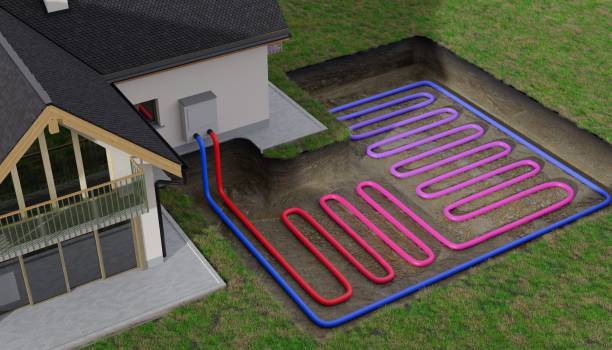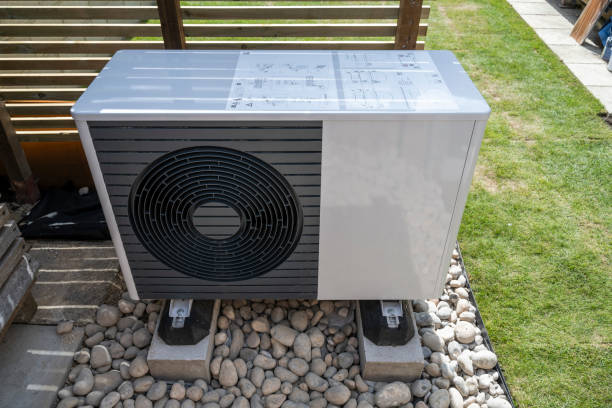The Benefits of Geothermal Energy: Harnessing the Earth’s Heat
Geothermal energy, derived from the Earth’s natural heat, has gained increasing recognition as a viable and sustainable source of power. This article explores the various benefits of geothermal energy and its applications across different sectors.
Table of Contents
Introduction
Geothermal energy is a renewable resource that harnesses the heat stored beneath the Earth’s surface. Unlike fossil fuels, which are finite and contribute to environmental degradation, geothermal energy provides a clean and abundant source of power. In this article, we will delve into the advantages of geothermal energy and its potential applications.
What is geothermal energy?
Geothermal energy refers to the heat energy stored beneath the Earth’s crust. It is generated by the radioactive decay of minerals and the residual heat from the planet’s formation. This energy can be harnessed through various technologies to produce electricity or directly provide heating and cooling.
How does geothermal energy work?
Geothermal energy is harnessed using geothermal power plants and geothermal heating and cooling systems. Geothermal power plants utilize the high-temperature reservoirs of water and steam found underground. Geothermal heating and cooling systems, on the other hand, use ground-source heat pumps to transfer heat between the Earth and buildings.
Advantages of geothermal energy

Renewable and sustainable
Geothermal energy is a renewable resource as it continuously replenishes itself through natural processes. The heat derived from the Earth’s core is virtually limitless, making geothermal energy a sustainable solution for meeting our energy needs.
Environmentally friendly
One of the significant advantages of geothermal energy is its minimal environmental impact. Geothermal power plants produce little to no greenhouse gas emissions and have a negligible carbon footprint compared to traditional power sources like coal or natural gas.
Cost-effective
While initial installation costs for geothermal systems can be higher than conventional heating and cooling systems, geothermal energy offers long-term cost savings. Geothermal heating and cooling systems are highly efficient and can significantly reduce energy bills, resulting in substantial savings over time.
Reliable and consistent
Geothermal energy provides a reliable and consistent source of power. Unlike solar or wind energy, which are intermittent and dependent on weather conditions, geothermal power generation operates continuously, ensuring a stable supply of electricity.
Versatile applications
Geothermal energy has versatile applications beyond power generation. It can be used for heating and cooling purposes in residential, commercial, and industrial sectors. Additionally, geothermal energy finds applications in agriculture, aquaculture, and spa facilities, among others.
Geothermal power plants

Types of geothermal power plants
There are three main types of geothermal power plants: dry steam, flash steam, and binary cycle. Each type utilizes different technologies to extract heat from geothermal reservoirs and convert it into electricity.
Geothermal reservoirs
Geothermal reservoirs are underground pockets of steam, hot water, or dry rocks with high temperatures. These reservoirs are crucial for geothermal power generation and determine the efficiency and output of geothermal power plants.
Geothermal power generation process
The process of generating electricity from geothermal energy involves drilling wells into the geothermal reservoirs and extracting hot water or steam. This high-pressure fluid is then used to rotate turbines, which, in turn, drive generators to produce electricity.
Geothermal heating and cooling systems

Ground-source heat pumps
Geothermal heating and cooling systems, also known as ground-source heat pumps, utilize the stable temperature of the Earth to heat or cool buildings. These systems circulate fluid through underground pipes, absorbing heat during the winter and dissipating heat during the summer.
Benefits of geothermal heating and cooling
Geothermal heating and cooling systems offer several benefits, including energy efficiency, reduced operating costs, and improved indoor air quality. These systems can significantly lower carbon emissions and provide comfortable and consistent heating and cooling throughout the year.
Geothermal energy in residential and commercial sectors

Geothermal energy has numerous applications in residential and commercial buildings.
Space heating and cooling
Geothermal systems can provide efficient heating and cooling for homes and commercial buildings. They utilize the Earth’s stable temperature to maintain comfortable indoor conditions, reducing the reliance on traditional heating and cooling methods.
Hot water supply
Geothermal energy can also be used for domestic hot water supply. By utilizing the waste heat from geothermal systems or employing dedicated geothermal heat pumps, buildings can have a consistent and energy-efficient source of hot water.
Geothermal energy for industrial purposes
Geothermal energy finds applications in various industrial processes.
Direct use of geothermal energy
In certain locations, geothermal energy can be used directly for industrial purposes such as food processing, drying crops, or extracting minerals. The high-temperature geothermal fluids are utilized to provide heat or steam required in these processes.
Industrial processes utilizing geothermal energy
Industries with high-temperature requirements, such as manufacturing, can benefit from geothermal energy. The heat extracted from geothermal reservoirs can be used in various processes, including metal smelting, cement production, and paper manufacturing.
Geothermal energy in agriculture

Geothermal energy offers unique advantages in the agricultural sector.
Greenhouse heating
Geothermal energy can provide consistent and cost-effective heating for greenhouses, creating optimal conditions for year-round crop growth. The stable temperature and humidity levels contribute to higher yields and enable the cultivation of crops that would otherwise be limited by seasonal variations.
Crop drying
Geothermal energy can also be utilized for crop drying, a critical process in agriculture. By utilizing the waste heat from geothermal systems, farmers can dry crops efficiently, reducing post-harvest losses and preserving their quality.
Geothermal energy and the environment
Geothermal energy has several environmental benefits.
Reduced greenhouse gas emissions
Geothermal power plants emit minimal greenhouse gases, contributing to the reduction of carbon dioxide and other pollutants responsible for climate change. Utilizing geothermal energy helps mitigate the negative impacts associated with traditional fossil fuel-based power generation.
Mitigation of air pollution
Geothermal energy production does not involve the combustion of fossil fuels, thereby avoiding air pollution caused by particulate matter, sulfur dioxide, and nitrogen oxides. This leads to cleaner air and improved public health in geothermal energy-producing regions.
Conservation of water resources
Unlike other power generation methods, geothermal energy does not consume significant amounts of water. Geothermal power plants recycle and reuse the water used in the process, minimizing the strain on local water resources.
Challenges and limitations of geothermal energy
While geothermal energy offers numerous benefits, it also presents some challenges and limitations.
Site-specific requirements
Geothermal energy is location-dependent and requires specific geological conditions. Not all regions have suitable geothermal resources, limiting its widespread adoption.
High initial costs
The initial installation costs of geothermal power plants and geothermal heating and cooling systems can be relatively high. However, these costs are offset by long-term energy savings and operational efficiency.
Potential for seismic activity
In some cases, geothermal energy extraction may induce or trigger seismic activity. Proper assessment and monitoring are essential to mitigate any potential risks associated with geothermal operations.
Future prospects of geothermal energy
The future of geothermal energy looks promising, driven by ongoing technological advancements and increased global awareness of renewable energy sources.
Technological advancements
Ongoing research and development efforts are focused on improving the efficiency and cost-effectiveness of geothermal systems. Innovations in drilling techniques, reservoir characterization, and power plant design contribute to expanding the geothermal energy sector.
Global geothermal potential
Despite the current utilization of only a fraction of the Earth’s geothermal potential, there are vast untapped resources worldwide. As renewable energy targets and climate change mitigation efforts intensify, geothermal energy is expected to play a more significant role in the global energy transition.
Final Thoughts
Geothermal energy offers a range of benefits, including its renewable and sustainable nature, minimal environmental impact, cost-effectiveness, reliability, and versatile applications. Geothermal power generation and heating and cooling systems provide clean and efficient solutions for meeting energy demands in residential, commercial, industrial, and agricultural sectors. While challenges and limitations exist, ongoing advancements and increased awareness of geothermal energy’s potential contribute to a promising future.
FAQs
How long can a geothermal power plant operate?
- Geothermal power plants have a long lifespan and can operate for several decades, typically 30 to 50 years or more.
Can geothermal energy be used in all locations?
- Geothermal energy is location-dependent and requires specific geological conditions. It is not feasible in all regions.
Is geothermal energy expensive to harness?
- While initial installation costs can be high, geothermal energy offers long-term cost savings due to its operational efficiency and reduced energy consumption.
Does geothermal energy require a lot of maintenance?
- Geothermal systems generally require less maintenance compared to traditional heating, cooling, and power generation systems. Routine checks and occasional servicing ensure optimal performance.
What are the environmental benefits of geothermal energy?
- Geothermal energy reduces greenhouse gas emissions, mitigates air pollution, and conserves water resources, contributing to a cleaner and more sustainable environment.














